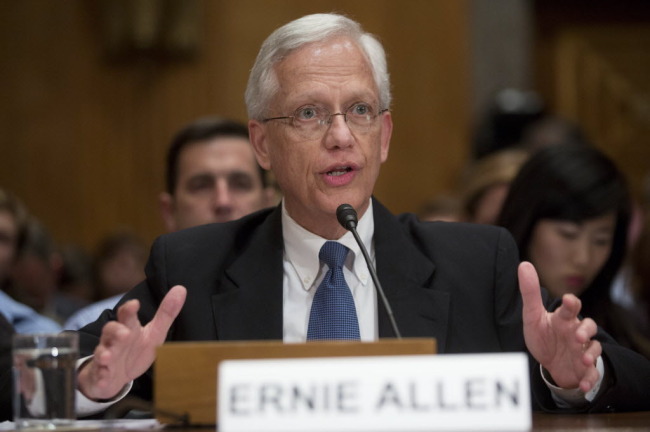Bitcoin supporters defend cyber currency at U.S. Senate hearing
By Korea HeraldPublished : Nov. 19, 2013 - 19:36

WASHINGTON (AFP) ― Bitcoin supporters told a U.S. Senate hearing Monday the virtual currency unit should not be viewed negatively by authorities despite its links to crime.
The currency has been linked to a series of high-profile criminal cases in recent months, most notably in the raid on the Silk Road website, dubbed the “eBay for illegal drugs.”
“Bitcoin is not a magic cloak for illicit transactions,” Patrick Murck, general counsel for Bitcoin Foundation, which promotes the currency, told the Senate Committee on Homeland Security and Government Affairs.
Launched in 2009, bitcoins can be exchanged online for real money or used to buy goods and services on the Internet. The currency is not regulated by any government.
Bitcoins recently made headlines when the U.S. Federal Bureau of Investigations closed the Silk Road website where illegal drugs, forged documents, hacker tools and even the services of hitmen were hawked. The FBI seized 26,000 bitcoins worth $3.6 million at the time.
Government officials also highlighted another digital currency, the Liberty Reserve, that was created in 2006 and used to launder some $6 billion.
Ernie Allen, president of the International Center for Missing and Exploited Children said that “child pornography is currently being created and disseminated using technologies and using virtual currencies for payment.”
According to Murck, however, if authorities are too unfriendly towards the currency, U.S.-based societies of users will only reemerge in countries that are more welcoming.
Jeremy Allaire, CEO of Circle Internet Financial, which offers payment services to promote the use of virtual money, denounced “the widely perceived high cost of transaction fees” associated with traditional currency.
While online currencies compete with standard money, such as the dollar, American Federal Reserve chairman Ben Bernanke wrote to the Senate in September that the currency, while risky, could be promising.
Mythili Raman who represented the U.S. Department of Justice, anticipated growth in the money accompanied by growth in illegal transactions.
Earlier this year, Germany recognized bitcoin as a currency, which permitted the country to tax bitcoin transactions.
Some $1.5 billion in bitcoins is circulating in the world.
Allen, of the International Center for Missing and Exploited Children, said he believed “this is an emerging technology that needs to be protected.”
But, he added, “misuse jeopardizes the virtual ability of the currencies in the longer run.”
Senator Tom Carper, committee chairman, expressed hope that the economic benefits of online currencies can be harnessed, while ridding them of their criminal elements.
The currency has been linked to a series of high-profile criminal cases in recent months, most notably in the raid on the Silk Road website, dubbed the “eBay for illegal drugs.”
“Bitcoin is not a magic cloak for illicit transactions,” Patrick Murck, general counsel for Bitcoin Foundation, which promotes the currency, told the Senate Committee on Homeland Security and Government Affairs.
Launched in 2009, bitcoins can be exchanged online for real money or used to buy goods and services on the Internet. The currency is not regulated by any government.
Bitcoins recently made headlines when the U.S. Federal Bureau of Investigations closed the Silk Road website where illegal drugs, forged documents, hacker tools and even the services of hitmen were hawked. The FBI seized 26,000 bitcoins worth $3.6 million at the time.
Government officials also highlighted another digital currency, the Liberty Reserve, that was created in 2006 and used to launder some $6 billion.
Ernie Allen, president of the International Center for Missing and Exploited Children said that “child pornography is currently being created and disseminated using technologies and using virtual currencies for payment.”
According to Murck, however, if authorities are too unfriendly towards the currency, U.S.-based societies of users will only reemerge in countries that are more welcoming.
Jeremy Allaire, CEO of Circle Internet Financial, which offers payment services to promote the use of virtual money, denounced “the widely perceived high cost of transaction fees” associated with traditional currency.
While online currencies compete with standard money, such as the dollar, American Federal Reserve chairman Ben Bernanke wrote to the Senate in September that the currency, while risky, could be promising.
Mythili Raman who represented the U.S. Department of Justice, anticipated growth in the money accompanied by growth in illegal transactions.
Earlier this year, Germany recognized bitcoin as a currency, which permitted the country to tax bitcoin transactions.
Some $1.5 billion in bitcoins is circulating in the world.
Allen, of the International Center for Missing and Exploited Children, said he believed “this is an emerging technology that needs to be protected.”
But, he added, “misuse jeopardizes the virtual ability of the currencies in the longer run.”
Senator Tom Carper, committee chairman, expressed hope that the economic benefits of online currencies can be harnessed, while ridding them of their criminal elements.
-
Articles by Korea Herald









![[Weekender] Korean psyche untangled: Musok](http://res.heraldm.com/phpwas/restmb_idxmake.php?idx=644&simg=/content/image/2024/05/02/20240502050841_0.jpg&u=)








![[Eye Interview] 'If you live to 100, you might as well be happy,' says 88-year-old bestselling essayist](http://res.heraldm.com/phpwas/restmb_idxmake.php?idx=652&simg=/content/image/2024/05/03/20240503050674_0.jpg&u=)
